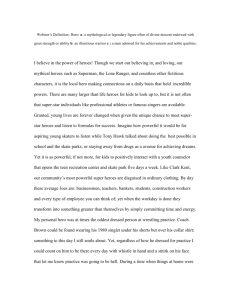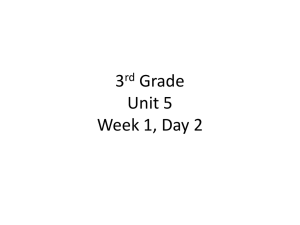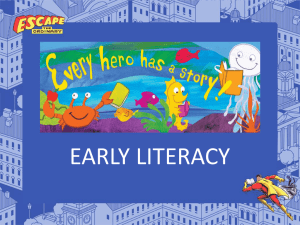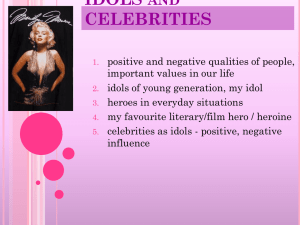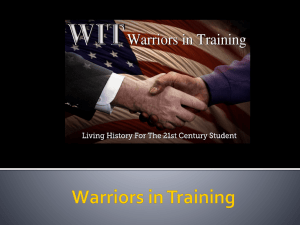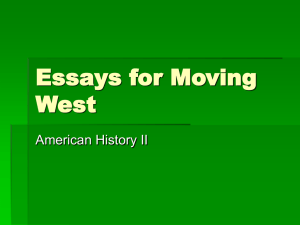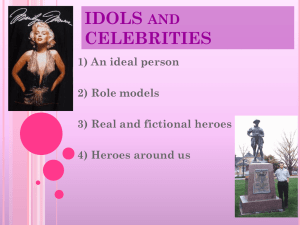Session2FormalandInformalLearningLocationWalkerAmes
advertisement
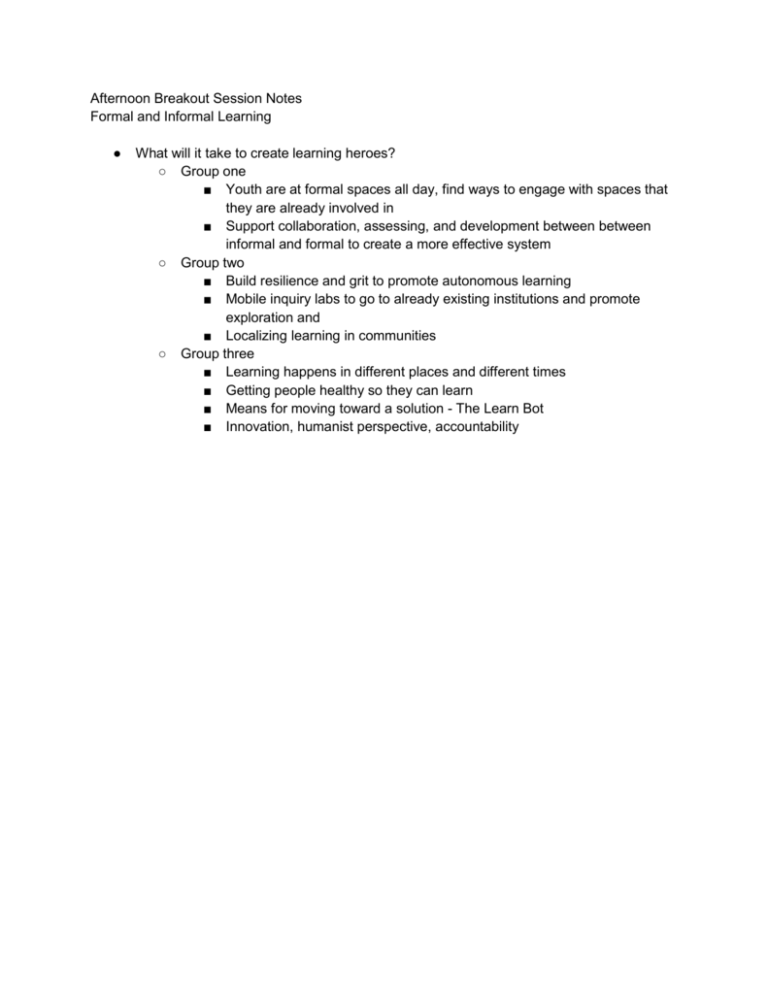
Afternoon Breakout Session Notes Formal and Informal Learning ● What will it take to create learning heroes? ○ Group one ■ Youth are at formal spaces all day, find ways to engage with spaces that they are already involved in ■ Support collaboration, assessing, and development between between informal and formal to create a more effective system ○ Group two ■ Build resilience and grit to promote autonomous learning ■ Mobile inquiry labs to go to already existing institutions and promote exploration and ■ Localizing learning in communities ○ Group three ■ Learning happens in different places and different times ■ Getting people healthy so they can learn ■ Means for moving toward a solution - The Learn Bot ■ Innovation, humanist perspective, accountability Other Notes: Learning heroes: - children because of passion, experiental, and full imersion; learning experience iterative, nonlinear; curosity and how kids explore - parents, spouses, teachers, other leaders in the field learning hero traits: uninhibited, passionate, experiental, iterative, nonlinear, curosity, fearless, ambitious, continuous, reciprocal, proactive, aware, open-ended, collaborative, child-like, inspired, unexpected, explanation, thinking deeply/questioning, interest-driven, motivated, inerdisciplainary, listening, communitty, What is it going to take to create learning heroes? A place for learning heroes - what's resource need, what's going to create learning heroes Cen: - More children's librarians Beth: - Need space, people, creative atmosphere Shawn Fullerton - people engaging with youth about the things they care about - take the things already there and transform them Beth - formal setttings must be transformed by informal settings - create a new platform of different profiles - not full collaborating of schools/libraries Other: Nurture innovative practices (eg new media) Shawn - build space where all the youth are coming there Beth - school open up to other posiblities outside of school - then have experts come in Cen - come up with new platform/space but also use existing assets - spaces that are good, but how can make better O - "learner at center of learning ecosystem" - learners learning everywhere not just classroom - existing structures need to adapt and change - not just leverage them obstacles to this: - competing for funding - structures - different professions/professional cculture, vocab - breaking down communication barriers - bandwidth - infrastructure, power structure - mandates for learning - opposite of connected learning - conformitty of epectations - research not making itts way to practitioners and visa versa O: adult mentors may not have their own learning heroes, so how can they appropriately mentor kids or encourage them to find learning heroes - no Why is it that kids below the age of 5 and their learnning is idealized, not older kids or adults - more messy, especially if interest is controversal Managing own creative impulse important to being a learning hero why isn't learing structured as "i don't know, let's figure it out together" summary of group - informal leaarning spaces, new media; library after school programs - youth at formal settings already so engage with spaces already so how can turn this into informal learning - supporting collaboration and conintuous improvement on formal settings and informal settngs and communicatiion with researchers and practitioners - intteratively collaboraaating, assessiing, moving together in this way - research, practice, policy - intergenerational learning Summary of annother group - build autonomous learners - outcome looking to build - looking for intrisic motivation - cultivate this quality - resources already within city - placeless space: move kids around on a bus to various places in the city in which to learn from existing resources; mobile labs Summary of third group - brainstormed what was important: research, policy, integration - different models of learning; time and space various--different learning at different times - people can't learn if don't have basic tools and are healthy (eg healthy families) - all leads to LearnBot --> senario: learn from family's situaation and make suggestions - will be individualized for families - personalized, research-based, connected, adaptable - collaboration - inttergenerational learning -reslience -intrisic motivation nand motivating leaarners - localized learning and outside established learning instutitions - innovations - wht people need in order to learn (families, lives, etc in learning enviornmentt) Allison - none of this is surprising--still want the same things as 20 yrs ago even though we have new tools. Why doesn't it exist? How to take those ideas and bring it into a reality. - have the resource, have possiblities, just havne't brought it together problems - collaboratiions are hard, policy "answer isn't technology - it's the people" - Beth Rebecca Reynolds - need to spend more time as a soeicty thinking aout what people need to be learning. then the technology is there - see what people need to be learning to address challenges that we have
